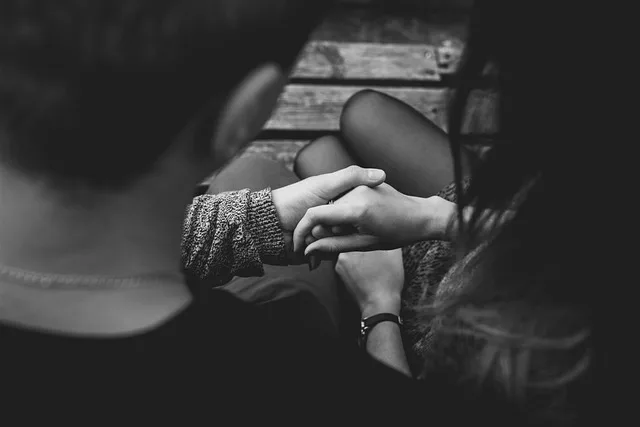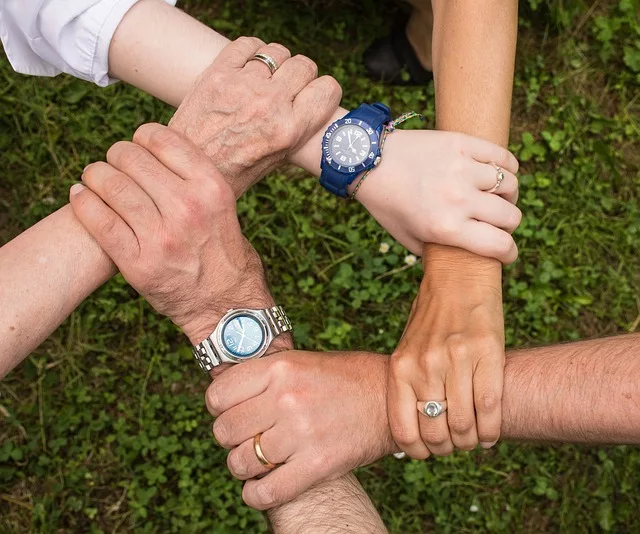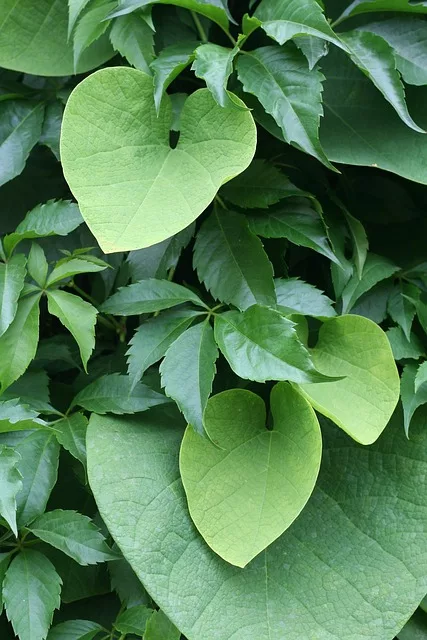Are you touch starved from skin hunger due to being isolated from others? There’s a biological reason behind it.
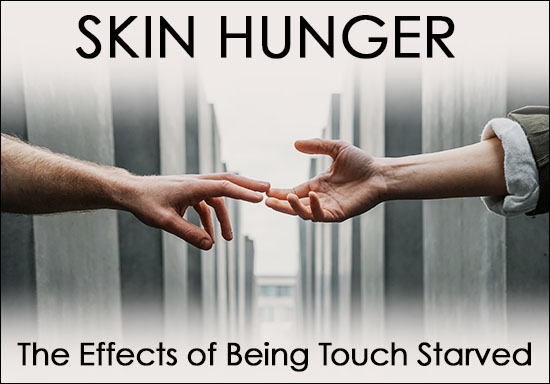
The human touch is incredibly important for both physical and mental health. Our skin is the largest organ in the human body and touch is the first of the six senses we develop as infants.
In times of isolation, whether self-imposed, the result of depression or anxiety, or as a precaution to prevent the spread of an infectious disease, feeling touch starved is very real and can have profound consequences on our wellbeing.
When a loved one, a friend or even someone like a trusted physician touches us, our brains release oxytocin, a neurotransmitter associated with feelings of social connection, emotional bonding and a decrease in fear or anxiousness.
Research has shown that infants who are not cuddled, nuzzled, and held with enough consistency can stop growing and form other developmental issues that last well into their adult lives.
There is even evidence, based on a 2014 study at Carnegie Mellon University, that hugs can help boost the immune systems and help us fight off infection.
Obviously, this does not apply when there’s an outbreak of a highly infectious disease, like the novel coronavirus COVID-19.
Unfortunately, there are times when we’re forced to resist one of the healthiest of all human impulses, which is to be touched and to touch others, in order to protect not only ourselves, but others as well.
This kind of skin hunger or touch starvation can lead to a number of different negative health symptoms.
Skin Hunger and Symptoms of Touch Deprivation
Different people will have varying reactions to touch starvation. For instance, in children suffering from this condition, loneliness and depression is often expressed through anger or aggressiveness.
Children don’t generally have the capacity to process or verbalize a lack of physical affection in effective ways, other than acting out.
There is also the fact that being touch starved is not something we generally think about, even if we’re feeling sad or lonely. So, it can be difficult to know if that’s what is causing a period of feeling low.
Some of the symptoms of being touch starved from skin hunger can include:
- Overwhelming feelings of loneliness and isolation
- Experiencing bouts of depression or anxiety
- Feeling “stressed out” and under-appreciated
- Difficulty sleeping
- A sense of dissatisfaction in a personal relationship
- The tendency to self-medicate feelings with drugs or alcohol
Some individuals may not need as much physical contact as others, but that doesn’t mean that they can’t experience skin hunger too.
The good news is that even if we’re forced, for whatever reason, to distance ourselves from others, there are steps we can take to mitigate and lessen the symptoms of skin hunger.
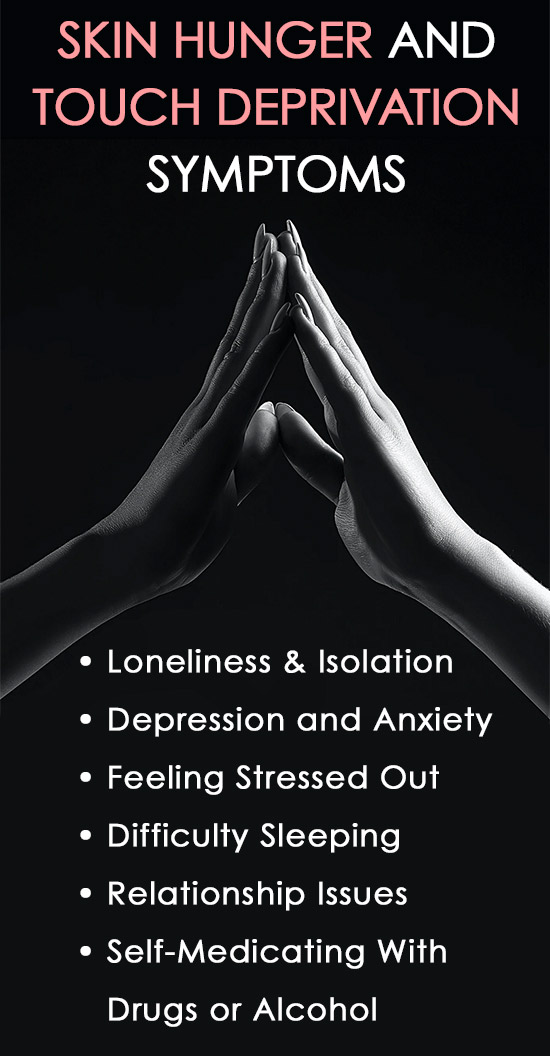
Touch Starved Treatment
Though it may not be as effective as the human touch, staying connected with friends, family or others through digital platforms like House Party, Skype, FaceTime or Zoom, where we can see the people we care about, can be very helpful.
Seeing others and talking about our feelings, or even more mundane things keeps us socially involved and reaffirms that there are others in the world who care about us and who we care about.
Some other ways to stave off skin hunger can include:
- Regular exercise helps lower levels of cortisol, known as the “stress hormone,” and increases levels of dopamine, which is associated with positive feelings
- Taking long hot showers or baths, bubbles optional, can stimulate our skin and offer up some needed relaxation and serenity
- If you’re a pet owner, spend a little extra time holding or petting your pet
- Mindful meditation, even for just a few minutes a day, can help regulate our emotions
- Maintain a healthy diet, as well as avoid alcohol and drugs, which can worsen symptoms of depression and anxiety
During especially challenging times, when it’s impossible to avoid isolation and social distance, it’s more important than ever to practice good self-care so that we can minimize the symptoms of skin hunger or feeling touch starved.
Stay focused on good habits and remind yourself that this kind of isolation is only temporary.
Related:
Anxiety vs Stress: What is the Difference Between Stress and Anxiety?
Ways to Stay Mentally Healthy During Isolation or Quarantine
Substance Induced Mood Disorder – Depression From Drugs or Medications
